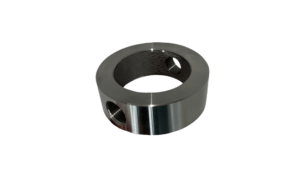
Flushing Ring: the key to cleaning and calibration without disassembly
Imagine you’re running an industrial plant and you’ve got a diaphragm seal protecting a pressure transmitter. Over time, the process fluid starts leaving deposits and
Pay attention, this is of interest to you! I will explain to you, in an easy way, why going cheap is not a very good idea. In the world of hydraulics, the quality of hydraulic hoses plays a crucial role in ensuring optimum performance and safety.
When investing in hydraulic hoses, skimping on quality can have disastrous consequences. High-quality hydraulic hoses offer numerous advantages that go beyond mere durability. They are designed to withstand extreme pressures, temperatures, and environmental conditions, ensuring a reliable, long-lasting solution. By investing in the best hydraulic hoses, you can minimize downtime, and reduce the risk of leaks and failures. Plus, you can maximize productivity and profitability.
In this article, we’ll delve into the advantages of high-quality hydraulic hoses. Get ready to discover how the right hydraulic hoses can make a difference in your operations.
A hydraulic hose is an essential component in hydraulic systems, used to transport fluids at high pressure. It is designed with resistant and flexible materials, capable of withstanding the required pressure and working conditions. Generally, it consists of an inner tube of rubber or synthetic material, high-strength reinforcements, and a protective outer cover. These features allow the hydraulic hose to transmit hydraulic power safely and efficiently. It prevents leakage and ensures proper system operation.
The use of hydraulic hoses is wide and diverse. Hoses are used to transmit hydraulic fluids, such as oil, water, or water and glycol-based solutions. In addition, hydraulic hoses are flexible and can be used in applications where rigid piping is not feasible. This allows for greater versatility in system design and installation.
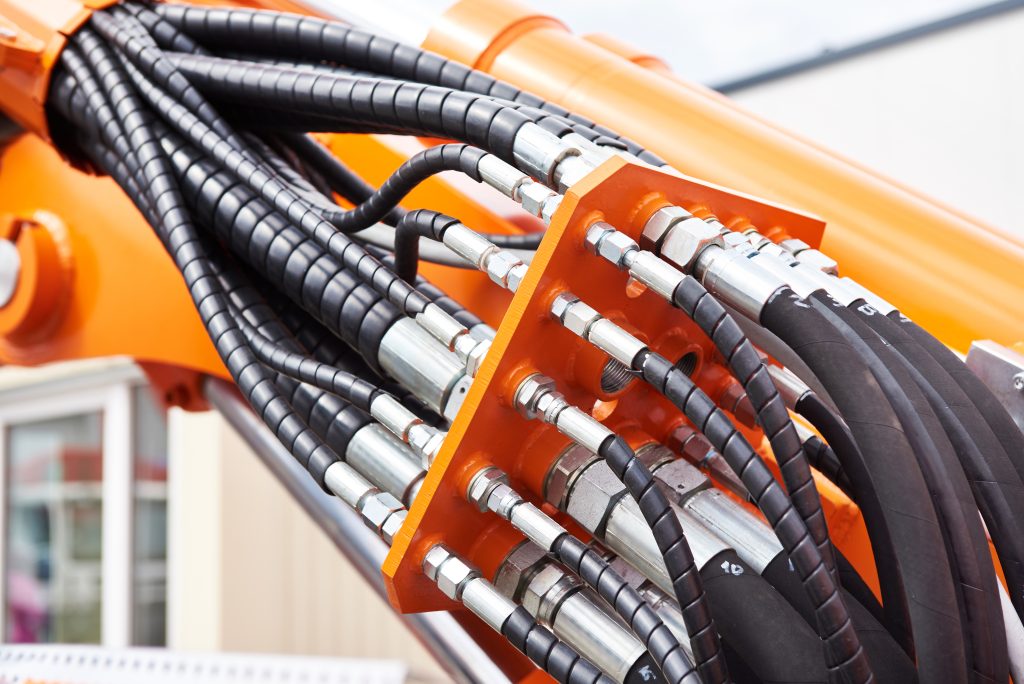
It is important to note that hydraulic hoses must be carefully selected. Take into account factors such as working pressure, temperature, type of fluid and environmental conditions. It is also necessary to carry out regular maintenance to ensure their proper functioning and prevent failures or ruptures.
It is crucial that hydraulic hoses are of good quality for several fundamental reasons. First, an inferior-quality hydraulic hose can fail and leak. This can compromise the integrity of the hydraulic system. A fluid leak at high pressure can cause damage to surrounding components, generate power loss and, in extreme cases, even lead to serious accidents. Therefore, using quality hoses ensures the safety and reliability of the system.
In addition, good-quality hydraulic hoses are designed to withstand extreme working conditions. Examples are high pressures, high temperatures, vibrations, and abrasion. These factors can put a great deal of stress on hoses, and if they are not made of strong, durable materials, they can deteriorate quickly and require frequent replacement. Using quality hoses ensures longer service life and reduces maintenance and replacement costs.
The durability of high-quality hydraulic hoses translates into less frequent replacement and maintenance. These hoses are able to withstand daily wear and stresses in harsh industrial environments. It can reduce the costs associated with frequent replacement of low-quality hoses. In addition, their resistance to degradation caused by environmental factors, such as exposure to UV rays, oils, chemicals and high temperatures, ensures consistent performance over time and avoids unnecessary interruptions in hydraulic system operation.
High-quality hydraulic hoses can withstand high working pressures, typically 3,000 to 6,000 psi (pounds per square inch), ensuring the integrity of the hydraulic system even in demanding applications. These hoses also offer increased abrasion resistance, allowing them to better resist wear caused by constant rubbing against rough surfaces or sharp edges. As a result, high-quality hoses can significantly exceed performance and durability expectations, resulting in increased productivity and reduced long-term operating costs.
High-quality hydraulic hoses also provide greater safety compared to low-quality hoses. These hoses are designed and manufactured to meet stringent safety standards. This ensures their resistance to leakage and catastrophic failure. High-quality hoses are thoroughly tested during manufacturing.
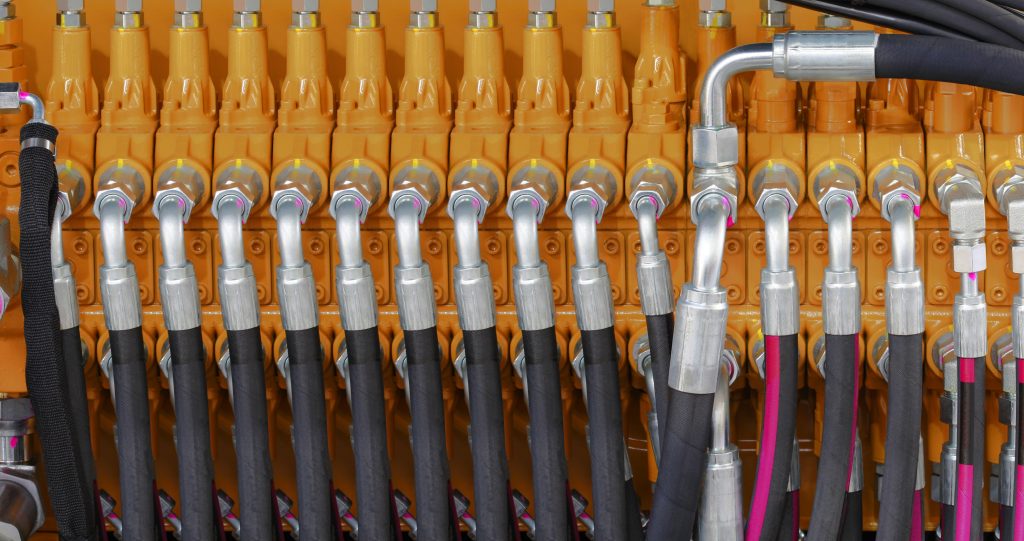
Using high-quality hydraulic hoses reduces the risk of accidents and ensures greater safety. Confidence in the strength and reliability of these hoses allows operators to work with peace of mind. In short, high-quality hydraulic hoses provide increased safety by resisting leaks and failures. Meeting the highest safety standards, it gives users confidence and peace of mind.
High-quality hydraulic hoses offer significant long-term savings over low-quality hoses. Although the initial purchase cost of high-quality hoses may be higher, their superior durability and extended service life far outweigh that initial investment. Longer service life reduces the cost of frequent hose replacement, as well as the costs associated with downtime and labor required to make replacements.
In addition, high-quality hydraulic hoses are more resistant to abrasion and adverse environmental conditions. It means less need for maintenance and reduced costs associated with cleaning, repairing, and replacing damaged hoses. This translates into greater operational efficiency and lower long-term operating costs.
The use of low-quality hydraulic hoses carries several potential hazards and risks, including:
In short, the use of low-quality hydraulic hoses increases the risk of leaks, ruptures, fires, and damage to other system components. These hazards can result in accidents, injuries, property damage, and costly downtime.
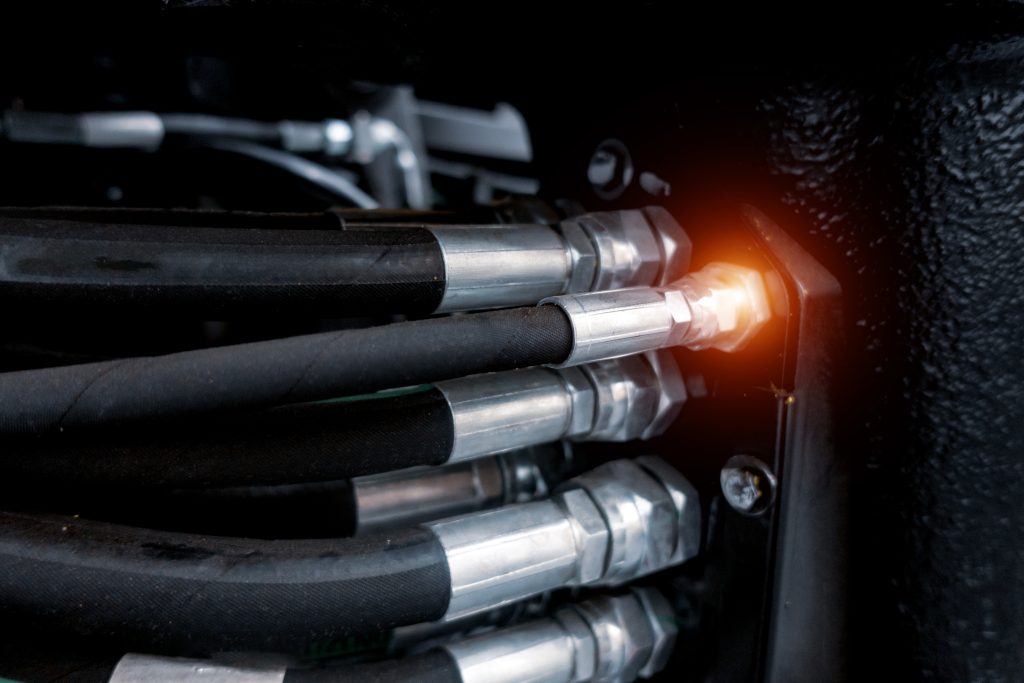
It is important to consider the following factors:
Well, I think it’s a no-brainer. At Redfluid. And if you want to know how to order them and exactly which hoses to order, click HERE. I’ll explain it to you in a moment.
And if after these two articles, it is still not clear to you exactly which hose to order, contact us.
In conclusion, investing in the best hydraulic hoses is a smart choice that brings with it a number of significant benefits. High-quality hydraulic hoses offer increased durability, strength, and reliability, resulting in extended service life and optimal hydraulic system performance. These hoses are designed to withstand rigorous working conditions, high pressures, and extreme temperatures, reducing the risks of failure, leakage, and damage to other components. In addition, high-quality hoses provide increased safety by meeting safety standards and minimizing the risk of accidents, fires, and injuries to operators.
Investing in high-quality hydraulic hoses (in the long term9 results in significant savings by reducing replacement, maintenance, and repair costs, as well as downtime and associated risks. In summary, choosing the best hydraulic hoses is a strategic decision that ensures the efficiency, safety, and cost-effectiveness of the hydraulic system in various industrial environments.
And if you are looking for all these benefits, you don’t have to do anything more than contact us. We will help you with whatever you need.
Share this post

Imagine you’re running an industrial plant and you’ve got a diaphragm seal protecting a pressure transmitter. Over time, the process fluid starts leaving deposits and
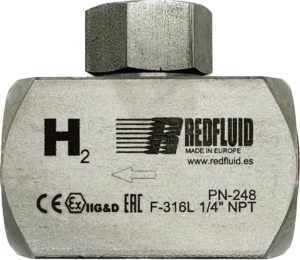
Imagine installing just any check valve in a hydrogen circuit. At first, everything seems to work fine — but over time, internal materials begin to